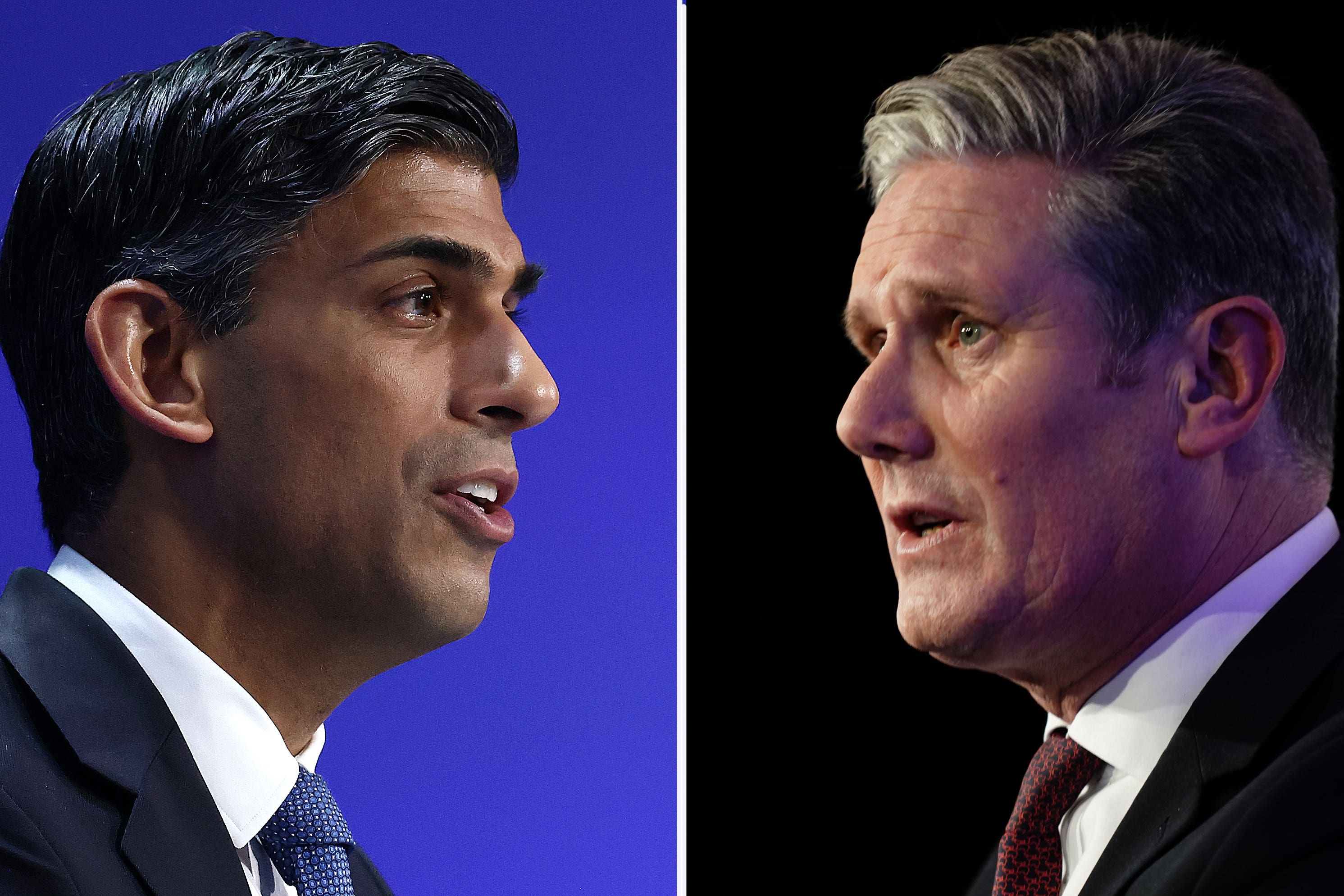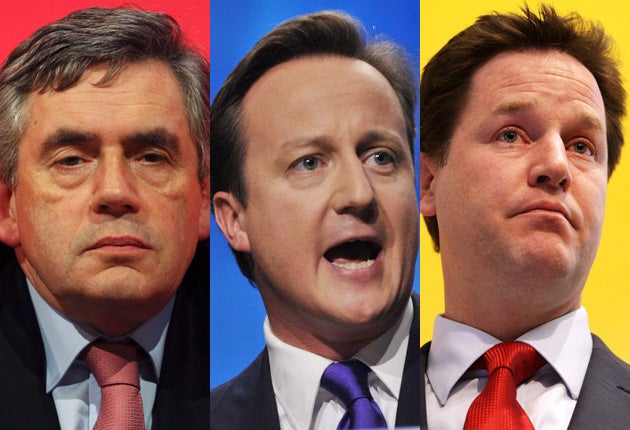How are Keir Starmer and Rishi Sunak preparing for election TV debates?
Keir Starmer, the man who seemingly has everything to lose, and Rishi Sunak, the prime minister trailing in his wake, are gearing up for what could be a crucial moment in the election campaign – the first televised showdown. Kate Devlin investigates

Televised election debates in the UK celebrate their 14th birthday this year. Long a mainstay of American elections, they are relatively new in Britain.
But they have already been the subject of controversy – and even looked as if they could change the shape of an election in the past. How are Keir Starmer and Rishi Sunak preparing for what could be the most important moment of the election campaign so far?
When is the TV debate?
The first head to head between the Tory and Labour leaders will take place at 9pm on Tuesday on ITV. If other televised debates are anything to go by, the event could be watched by more than 10 million people. The BBC will host the final debate on 26 June, the corporation has confirmed. It will be hosted by BBC newsreader Sophie Raworth and take place in Nottingham, airing on BBC One and BBC News.
Have the debates been transformative in the past?
It certainly looked as though they were in 2010. David Cameron went in as the frontrunner against a tired Gordon Brown. The Conservative leader looked as if he had nothing to lose, yet by the end of the hour, a new phrase had been coined in British political history – “I agree with Nick”. Nick Clegg, the then Lib Dem leader, stormed out of nowhere to become the soaraway success of the night. His surprise ability to knock both Brown and Cameron off their stride delighted television viewers and sent his party’s poll ratings to heights it had never seen before.
At one point, “Cleggmania”, as it was dubbed, appeared as if it might have a material effect on the outcome. In the end, the Lib Dems dropped in popularity over the following few weeks as the effect wore off. But the result was a hung parliament. And David Cameron spent the next five years saying “I agree with Nick” after he was forced to make him his deputy prime minister in a coalition deal with the Lib Dems.

Who is the underdog this time around?
With Labour more than 20 points ahead in many opinion polls, it is Rishi Sunak who is struggling. The prime minister has been aggressively taunting the Labour leader to take him on face to face. Senior sources briefed that Mr Sunak was ready to do a record number of debates – six, in fact, one for every week of the campaign. In the end, however, it is expected that there will be just two head to heads, with several other events featuring different parties and politicians.

How are the leaders preparing?
Preparations have been under way for months. The Conservatives are convinced Labour’s plan for government has not been stress tested. And they hope that the focus of a television studio will put a greater spotlight on the opposition’s policies than ever before. Helping Mr Sunak prepare, and playing the role of Sir Keir, is deputy PM Oliver Dowden, who has helped brief almost every Tory leader of the last 25 years for PMQs.
Sir Keir’s team have been road-testing their candidate for weeks. Insiders knew the debates would be a big feature of the campaign and have organised some of their visits across the country with an eye to getting in some practice. And so, visiting workplaces and hosting question-and-answer sessions with employees has been a growing feature of Sir Keir’s diary. People close to the Labour leader admit he may not have been asked the hardest of questions by staff, mindful that their bosses are watching. But they believe it has helped him hone his message and get comfortable with responding quickly to the unexpected.
One thing that is not happening, say insiders, is Rishi Sunak impressions. Standing in for the PM is Tom Webb, who also does PMQs prep – but is not affecting the Tory leader’s accent or mannerisms. Labour will be hoping that in a few weeks, Mr Sunak will be nothing but a memory.



Join our commenting forum
Join thought-provoking conversations, follow other Independent readers and see their replies
Comments